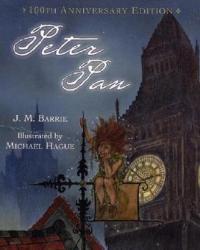
I LOVED this book! Although it was written a long time ago by an unsuccessful playwright, J. M. Barrie perfectly captured the imagination and creativity of young children. The reason he was disliked in his time was because he never really grew out of his kid-self. Which, I think, I think is where the inspiration for Peter Pan came, “the boy who never grew up”.
But anyways, Wendy and her younger brothers are born into a family that struggles financially but are obsessed with appearing rich to their wealthy neighbors… a common trend, even today. But Wendy and her brothers are whisked into a world where imagination runs wild-- the land that is hidden in all children’s minds, the one that is different for every child, Neverland.
What I love about this book is the constant thread of hidden and discreet themes about humanity, ones that continue today. It also taps into a child’s world of freedom, imagination, and oppression from adults. One of the most heartbreaking chapters is at the very end, when Wendy grows up, forgets about Peter, and gets lost in the adult world. But she has a daughter, Jane, and Jane is a kid, so she can imagine and believe in Peter Pan. Naturally, Peter Pan never really hit it off in it’s time, because of the controversial thoughts, and the point of view from kids.
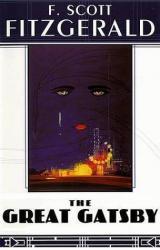
I thought this book captured an element in life that writing doesn't normally follow. While most books talk about the underprivileged, or those trying to overcome a great challenge, this book spun a tale about glamorous cocktail parties, elegant evening wear, the enticing, almost seductive society of wealth. Nick Carraway moves into a house next to Gatsby, an extravagant, self-made millionaire in the 1920's, and is thrown into the fast-paced and whirling word of millionaires and all their expensive friends.
But Gatsby has a secret, buried under fancy cars and fizzy drinks: he is still in love with Daisy, the wife of Tom Buchanan. In his attempts to cultivate an affair with her, Nick documents the heart-wrenching, and frankly, very interesting, journey of a man who realises money can't buy him love. -Jordan, 8th grade Your Name: Jordan T, 8th grade
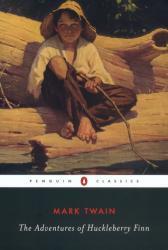
The classic tale "Huckleberry Finn" is about a young boy and his adventures with a slave named Jim amidst war and racism. I hated this book for two reasons. Firstly, the plot doesn't seem to go anywhere. It seemed that Finn and Jim just wandered aimlessly around, befriending unlikable people and getting into trouble. Secondly, Finn was a very unlikeable protagonist. He doesn't show any sort of compassion or kindness towards anyone -- and doesn't seem to care if his friend Jim lives or dies. It is difficult to root for and follow a hero that you hate. While I personally did not enjoy this book, don't let that stop you. I know many people who really enjoyed "Huckleberry Finn" -- I was just not one of them. But, if you are someone who likes a strong plot and a fairly likable hero, this one is not for you.
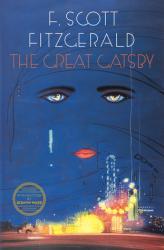
The classic tale of "The Great Gatsby" follows Nick Carraway, a newcomer to the city, who discovers the lavish and intoxicating life of Jay Gatsby, his next door neighbor. Nick soon becomes entangled in a net of secrets and deception that involves his friends Daisy Buchanan and her husband Tom. After hearing so many incredible things about "The Great Gatsby", I came into the story with high expectations. Unfortunately, they were not really met. While the story is undeniably powerful, it lacks in some areas. I found all the characters extremely unlikable. There was no one to really root for. In addition, there were parts of the story that seemed to drag on for far too long. I found myself asking, "When is something going to happen?" at several points. All in all, I didn't hate this story, but it definitely wasn't my favorite classic to read. Grade 12.
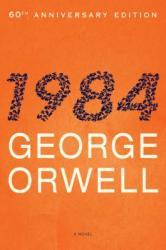
1984 is a timeless classic about a dystopian future where war is constant and you are constantly watched and carefully studied by an ominous force called the Thought Police. Everyone is expected to completely devote themselves to The Party (the ruling government) and believe everything they say. If the Thought Police detects the slightest amount of dissonance in a citizen, they disappear and, according to The Party, cease to exist - and never existed. One party member, Winston Smith, has been rebelling against the Party in thought only for years. Now, he finally gets enough courage to stand up for what's right. Will Winston be able to stop the tyrannical rule of The Party or will it all be in vain? Find out in 1984!
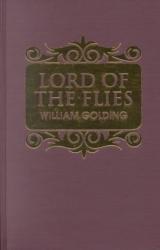
A group of boys are stranded on an island after a plane crash. With no adult supervision, the boys are free to do whatever they want. At first this is something to celebrate. However, as their time on the island grows, the boys learn the challenges of staying alive. Eventually, some of the boys become complete savages and complete chaos reigns the island.
Lord of the Flies is full of symbolism and is at some points very difficult to understand. To follow the story, much inferring is necessary along with a fairly advanced vocabulary. I personally did not enjoy the story very much.
However, some readers may disagree. I do not recommend this book for anyone that is younger than high school.
Reviewer Grade:9
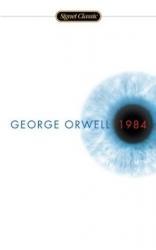
Okay, let me just say this: All you poser dystopian teen novels 'breaking the rules' with scandalous gratuitous plot elements better just step back. Nineteen Eighty-Four, the granddaddy of all dystopian novels, just handed your butt to you. This book isn't kidding around. Danger, insubordination, illicit sex, graphic torture, this book has it all. It's not for the weak of heart. And the ending is so powerful and heart-wrenching! The only reason it doesn't get 5 stars from me is the lengthy political and philosophical treatises that appear a few times in the book. I get it, this is the quiet power behind the novel and the part that is dissected by academia. But I'm not an academic, so it didn't do it for me.
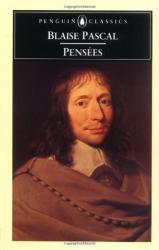
While I do enjoy and appreciate the ease of which I can listen to an audiobook and absorb the content of a variety of books, there are always a few books that don’t translate well into the format. Sure, I might have my qualms about the narrator’s pronunciation, volume control, or other technical issues. However, this is the first book where the rating I’m giving applies explicitly to the audiobook version, and not necessarily to the book’s contents. The difference here is that the audiobook version of Pascal’s Pensées doesn’t allow the reader enough time to adequately absorb the content.
If I were to classify this book, I’d probably say it’s closer to a listing of complaints/observations that would work better on a multi-year “item-a-day” calendar than in an audiobook format. The majority of Pensées is a series of proverbs by Blaise Pascal, a name that most scientists will recognize. The fact that he so thoroughly analyzed the theology of the Bible and came to the conclusions that he did perhaps speaks volumes about scientific atheists today who have not done nearly as much research on their spiritual beliefs. There are plenty of gems of wisdom in this book; it’s just that the audiobook format doesn’t easily allow the reader to dwell on them for more than a moment.
Perhaps when I have a little more time to fully appreciate Pascal’s Pensées, I’ll sit down and read it. Fortunately, since it’s in the public domain, this book is free to read on Project Gutenberg. Until then, though, I can’t recommend people read the audiobook version of this text.
If I manage to physically read this book in the future, I’ll likely give it an adequate rating, but as it is right now, I only have the audiobook version to go off of.
A book of proverbs you should read instead of listen to, I give Pensées 2.5 stars out of 5.
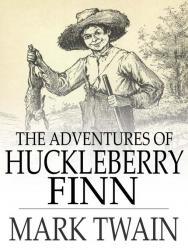
Huckleberry Finn is a rebel against school, church, and the respectable society that wants to civilize him. Therefore, after faking his own death, Huck embarkes on a raft journey down the Mississippi River along with Jim, a runaway slave. The Adventures of Huckleberry Finn is a novel full of shenanigans, adventures, schemes, and pranks in addition to deep contemplation that gives some great advice. This adventure is truly a classic and I highly recommend it for any middle schooler or older since there is something in this book for all ages.
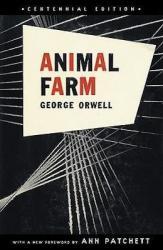
Animal Farm is a dystopian novel about a farm overrun by the farm animals. The animals revolt and create their own hierarchy, which poses an overarching metaphor for humanity. Like many of Orwell’s books, this book exposes the flaws of mankind in an allegorical manner. I chose this book for its dystopian nature, and it did not disappoint. It is artful in its satire, and Orwell takes a clear stance on tyranny. This is among the best dystopian books I have read.
Reviewer Grade: 12
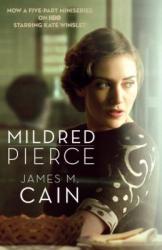
It’s almost uncanny how timeless the story of Mildred Pierce remains to this day. I could easily see a similar story set in 2009, immediately following the housing crash—instead of following the Great Depression. Of course, this also is an unsettling reminder that many societal structures haven’t changed much since the 1940’s. The patriarchal society that existed then still exists to an extent today, which is troubling because of the increased difficulty women have in trying to get ahead in life, especially after something like a divorce or bankruptcy. The fact that the titular character was able to overcome these limitations speaks to her talent as much as to her luck.
The most noticeable differences between the Hollywood version with Joan Crawford and the source material of this book mainly come down to the amount of suggestive/objectionable material within it. This is likely due to the book’s slightly more pulpy origins, combined with the Hays Code that was prevalent in Hollywood at the time. In fact, the plot almost seems modern, despite its 1940’s roots. The women in Mildred Pierce were certainly more in control of their destinies than we’d like to think, given the era in which they lived.
While the basic rags-to-riches story is inspiring and does lead to some interesting character growth, the constant conflict between the main character and her daughter or husband or lover is what really drives the plot along. The only difference between how Mildred acts at the beginning of the book and how she acts at the end comes down to the simple accumulation of life experience. If she had encountered the kinds of problems when she was barely scraping by, she wouldn’t have reacted in the same way as when she had built a restaurant empire on the one skill she had: hospitality.
A story about a strangely modern woman who overcame patriarchal limitations, I give Mildred Pierce 4.0 stars out of 5.
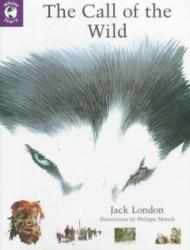
I chose to read this book because it was cheap at the bookstore, and I am so glad that I read it. I have not read many realistic adventure books, but it is my new favorite genre. The Call of the Wild centers around a hard-working, strong dog named Buck who is tragically sold into hard labor. This book evokes sentiments from utter despair to immense joy, and Jack London’s writing style is simple yet eloquent. I strongly recommend this book to everyone.
Reviewer Grade: 12
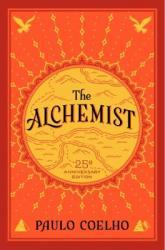
To be honest, I only really bought this book because it came heavily recommended from the manager of the bookstore I was at. He claimed it was a book you could read over and over again, and get a new message from every time. But about a quarter of the way through, I admitted to myself it was an average book. It didn't have spectacular or eye-opening writing, and the plot was okay I guess. Essentially, it's about a young shepherd who meets a 'king' in a marketplace in Spain. The king convinces him that there is a Personal Legend everyone has in this world, and the universe conspires to help you achieve it. All throughout this book, Santiago (the shepherd) follows omens, prophecies, and recurring dreams in the hopes of finding a treasure by the Egyptian pyramids. On the way, he helps a crystal merchant, meets an English man who aspires to be an alchemist, the love of his life, and eventually the alchemist himself. In the end, he finds himself, the woman he loves, the treasure of a forgotten pirate (cliche! Boo!), and he accomplishes his Personal Legend. It was okay, but really generic writing and not a very interesting plot. Who knows? Maybe the message will change when I read it again. But I rather doubt it.
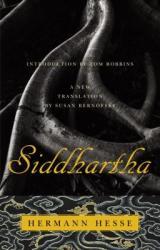
Siddhartha is a tale of a young man who lives many different lives, from a Brahmin's son to an ascetic to a wealthy merchant. He does this all to find inner peace, or nirvana. I liked this book because of its style of narration. I have learned about Buddhism before from textbooks, but this style of information is so much more interesting. Siddhartha has many character flaws, but he eventually manages to wash them away in the cycle of time. Reading this book is a very introspective experience that everyone should have.

The Great Gatsby is a classic set in the Roaring Twenties. It exposes the flaws in the very ideals that built America--wealth, beauty, and the American Dream. The tone of this book is despondent, and every character is tragic in one way or another. Indeed, this is a book of many emotions, some even gut-wrenching. My favorite aspect of this book is how Fitzgerald uses fiction to talk about very real issues. I strongly recommend this book.
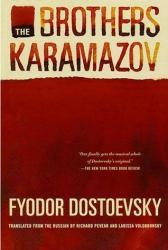
I enjoyed listening to this book. The narrator was fantastic. I found I had to look up plot summaries to really get what was going on (thank you, wikipedia). The nicknames alone were confusing. I suppose that's to be expected with a novel this complicated. It seemed like every character in the book save Alyosha were selfish, immoral, and in a few instances downright depraved. This made it somewhat of a chore to listen to in some parts of the book as I couldn't root for anyone. But I enjoyed the epilogue, which ended on a positive note.
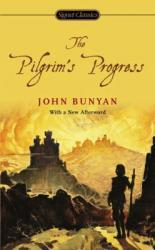
I distinctly remember my parents reading this book to me when I was a child. Decades later, I decided to re-visit it and read it for myself. I don’t know if it was an abridged version or a simplified re-telling appropriate for kids, but this was not the book I remember from my childhood. Sure, the action bits were still there, like the fight with Apollyon, the Slough of Despair, and the suicide discussion in Vanity Fair, but there was way more dialogue than what I recalled of the story. Not to mention the verbiage/wording seemed more along the lines of a King James Bible than of a fantasy setting.
Sure, I’ll concede that, for 1678, this was a groundbreaking piece of fiction, and perhaps the first piece of successful fantasy ever written, but it hasn’t aged entirely as well over the years when compared to its source material. There are undoubtedly little lessons and morals present here, but they are often buried between and among diatribes from the primary and supporting characters. Furthermore, I was only loosely aware that there was a “Part 2” to the main story of Christian’s journey. After reading the journey of Christiana and her children following in Christian’s footsteps, I can see why I never heard that part when my parents read it to me: there wasn’t much new material in it.
When I picked up this book to read for myself, I was trying to confirm that I could use it as a framework for my Slumberealm trilogy. After reading through it, I realized the apparent references to concepts, ideas, and people is more indicative of the style I used for The Fluxion Trilogy . There’s not a lot of subtlety in the character names or destinations present in The Pilgrim’s Progress. I suppose that’s part of the charm of such an allegory, though.
A groundbreaking piece of fantasy that hasn’t aged well over time, I give The Pilgrim’s Progress 2.5 stars out of 5.
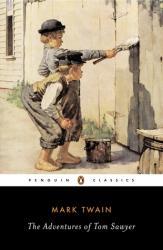
Mark Twain's beloved nineteenth-century novel is a thrill. Tom Sawyer is the story of a boy that everyone can relate to. From being bored in Sunday school to playing pranks on the teacher to running away and playing pirates, Tom Sawyer is full of boyhood adventures. The Adventures of Tom Sawyer is filled with comedy, warmth, and youthful innocence. However, below the surface, The Adventures of Tom Sawyer is about young boys facing the cruel adult world. This novel is truly a classic and can be enjoyed by all ages, especially upper elementary, middle schoolers, and high schoolers.
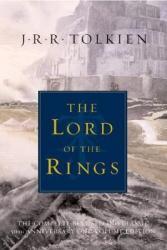
A stout story, a rich song, a tale for all times. Tolkien heard the gorgeous music of narrative, with all its valleys and hilltops, with all the grit of the fight, all the glory of overcoming, all the long, drawnout parts of day-in and day-out small faithfulness. He heard a musical narrative and he composed a symphony. But like all great masterpieces, one’s affections and tastes must be enlarged and strengthened to enjoy wine this strong. Such a stout story is not for the faint in heart. In an era where our literary sensibilities are cheapened by bland paperback fiction, reality TV, inane tweets, texts, and Facebook posts, we are a society easily pleased by cultural fast food, and we often can’t appreciate with the robustness of a story told this well. There are answers in this story to questions we’ve never thought to ask. This story explores places in the heart we’ve never thought to search, depths of the human soul we’ve never considered worth pluming. If we don’t resonate with this story it is because there is much that the author wants to tell us that we are not yet ready to hear.
Search the world over, and I don’t believe you’ll find another piece of fiction as epic, as moving, as heart-transforming, as the Lord of the Rings Trilogy. What sets the literary genius of Tolkien above most other authors of fiction is his ability to make his imaginary world shine with such brilliance that the affections of the heart will come to love its shores, its stories, its struggle to stay in the light. Story is one thing that cannot be faked by a shallow writer. Either an author has within him an tale of inspiring beauty, of struggle, of overcoming, of fighting and conquering, of living and dying for what one believes in—or he does not—and what comes out instead is flat, bland, one-dimensional.
But if one is willing to be a patient learner, one can have one’s mind and heart expanded by being a slow and thoughtful reader. If your heart does not sing by the end of the book, if you do not have a new resolve to overcome the evil in your own heart, if you are not transformed to live for truth and beauty by the end, then I wonder that you have a pulse.
The only precaution I give you is the peculiar feeling of sharp disappointment that will pang you as you read the last line of last volume, knowing that the book is over and there will never be another like it. The only solace I allowed myself was the thought that soon my children will be at an age to appreciate it and I can relive the volumes through their imaginations. Be prepared to mourn for the series' finitude even as you enjoy every brilliant page.
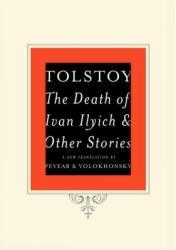
“There is a way that seems right to a man, but in the end leads to death.”
This short story was a moving reminder to me of the potential that a narrative has to move the soul to understand things that propositional truths have failed to convey.
All Ivan’s life, the realization that he would someday die was something that he believed theoretically, but he could never quite make the fact real to himself. Other people would die, yes, but the reality that he would someday have to die, and also perhaps suffer some before death took place, had no reality to him, no real meaning, no authenticity to his mind.
Until…one day he found that he was in fact dying.
This came as a deranged shock. He had never truly considered the matter seriously. What was happening seemed strange, foreign, out-of-place. He continually tried to deny the fact that he was dying, but a gnawing pain in his side, that daily grew stronger despite being seen by all the top doctors, was his constant reminder that death, his very own death, was real and imminent.
Much of this short book relates mundane details of Ivan’s life: how he met his wife, his occupation, the people he spent time with, and what gave him joy in life. But rather than these details being tedious, they fascinated me because they showed how the small, seemingly insignificant choices of a man’s life are what make a man. And every line of this story is full of meaning as it leads up to a definite point, like any great work of fiction ought to do.
“There is a way that seems right to a man, but in the end leads to death.” Ivan’s story draws one in because Ivan is not a “bad person,”
by society’s standards. He keeps only the best society, he follows all the rules of decorum, he does not commit crimes or murder or steal. His conscience never bothers him. He is faithful to his wife, provides for his children, and makes sure that everything in life runs smoothly and quietly.
He rarely raises his voice, and he suppresses his anger whenever his wife makes a scene. He sees himself as the perfect gentleman.
But pain has a way of bringing to the surface what lies deep within a man’s heart. And it is not until the pain reaches a fever pitch, that Ivan, for the first time in his entire life, is able to see clearly what has been true his entire life.
I highly recommend this short book!


